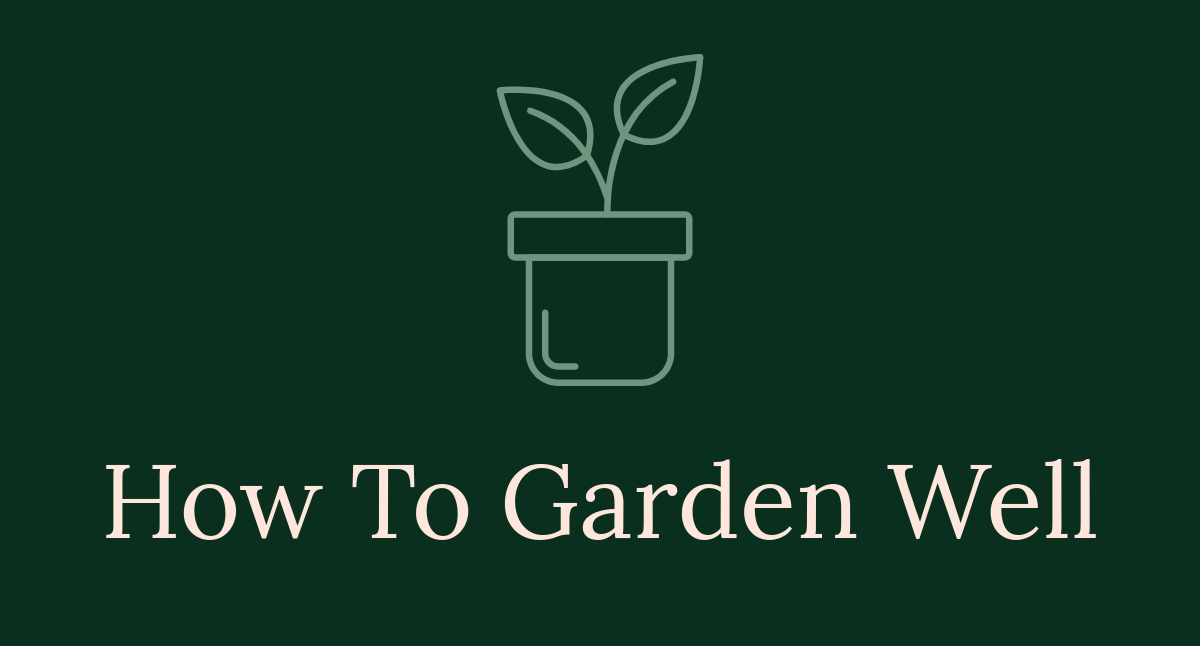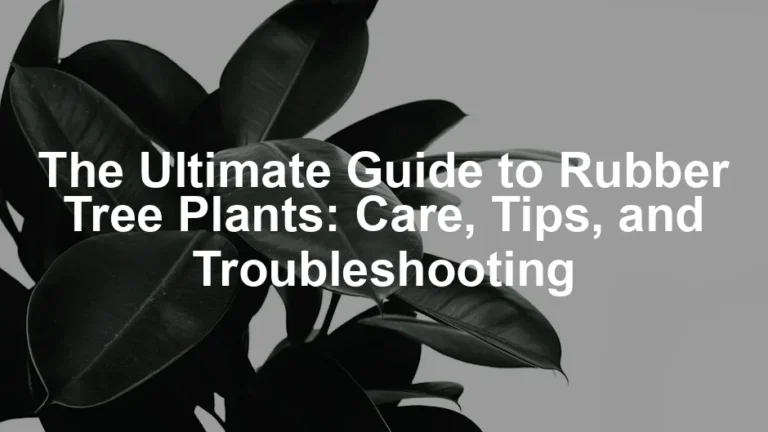

Best Organic Fertilizers for Vegetable Gardens in Small Spaces
Introduction
Organic fertilizers are the superheroes of small vegetable gardens. They offer a natural boost, ensuring your plants thrive without the nasty side effects of synthetic options. With their rich nutrient profiles, organic fertilizers foster soil health and create a thriving ecosystem that benefits not just your plants, but the environment too.
Using organic fertilizers means you’re nourishing your plants with natural goodness. They improve the soil structure, enhance microbial activity, and reduce harmful runoff. Plus, they keep your garden safe for pets and kids, allowing you to cultivate your green space worry-free. And if you’re looking for a reliable option, consider Organic Seaweed Fertilizer for a nutrient boost!
In this article, we’ll uncover the best organic fertilizers for those petite patches of paradise. We’ll cover application tips, DIY options, and how to make the most out of your limited gardening space. Let’s get growing!

Understanding Organic Fertilizers
What are Organic Fertilizers?
Organic fertilizers are derived from natural sources, making them a fantastic choice for gardeners who prioritize sustainability. They come from a variety of materials, including compost, manure, and plant-based materials. Unlike synthetic fertilizers, which can strip nutrients from the soil, organic options enrich it.
The nutrient content in fertilizers is often represented by the NPK ratio—Nitrogen (N), Phosphorus (P), and Potassium (K). These elements play pivotal roles in plant growth. Nitrogen promotes lush foliage, phosphorus aids in root and flower development, and potassium helps with overall plant health and disease resistance. Understanding these nutrients is crucial for choosing the right organic fertilizer for your vegetable garden.
Organic fertilizers not only feed your plants but also improve soil structure and water retention. They create a balanced environment that supports beneficial microbes, fostering a healthy ecosystem. This natural approach leads to thriving plants and an abundant harvest, making organic fertilizers a smart choice for small-space gardening.

Benefits of Using Organic Fertilizers
Organic fertilizers are like the gentle giants of the gardening world. They work their magic without the harsh chemicals found in synthetic options. Here’s why they should be your go-to choice for a thriving vegetable garden in small spaces.
Improved Soil Health
First off, organic fertilizers improve soil health. They enrich the soil with organic matter, which enhances its structure. Think of it as giving your soil a spa day! Healthy soil promotes microbial activity, turning it into a bustling hub of beneficial organisms. These microbes break down organic materials, making nutrients more accessible to plants. The result? Stronger roots, healthier plants, and a more vibrant garden.

Sustainability
Sustainability is at the heart of organic gardening. By choosing organic fertilizers, you contribute to eco-friendly practices. These fertilizers are often made from natural materials, reducing the reliance on synthetic chemicals that can harm the environment. Using organic options helps maintain the balance in the ecosystem, allowing beneficial insects and microorganisms to thrive. Plus, you’re reducing your carbon footprint—talk about a win-win!
If you’re serious about sustainability, why not check out some Organic Compost? It’s a great way to enrich your soil naturally!
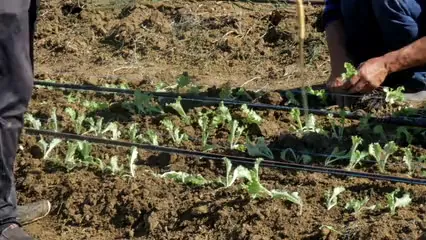
Safety
Let’s talk safety. Organic fertilizers are generally safer for pets and children. Unlike synthetic fertilizers, which can be toxic if ingested, organic options minimize health risks. You can garden with peace of mind, knowing your little ones and furry friends can roam freely. Whether they’re chasing after butterflies or rolling in the grass, you won’t have to worry about harmful chemicals lurking in your garden.
In summary, organic fertilizers improve soil health, support sustainability, and offer safety for your family. These benefits make them the best choice for your compact vegetable garden. So, roll up those sleeves, and let’s get growing!
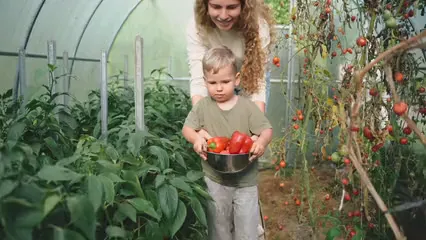
3. Seaweed/Kelp Fertilizer
Seaweed and kelp fertilizers are like the secret sauce for your vegetable garden. Packed with micronutrients, they provide a smorgasbord of benefits. These underwater wonders stimulate root growth, helping your plants establish themselves quickly. With potassium, calcium, magnesium, and a variety of trace elements, seaweed fosters strong, healthy plants.
Using seaweed fertilizer promotes soil health, too. It enhances microbial activity, which is crucial for nutrient absorption. This means your veggies get the nourishment they need, leading to bigger and better yields. Plus, it can improve soil structure, allowing for better water retention and drainage.
When it comes to application, you can’t go wrong with versatility. Liquid seaweed can be diluted with water and used as a foliar spray or soil drench. Aim to apply it every 4-6 weeks during the growing season for optimal results. For powdered forms, mix it into the soil before planting or sprinkle it around established plants. Just remember, moderation is key. Overdoing it can lead to nutrient imbalances, which is the last thing you want in your thriving garden!

4. Bone Meal
Bone meal is a gardener’s best friend, especially when it comes to boosting phosphorus levels. This organic fertilizer helps your plants develop strong roots and encourages flowering and fruiting. If you’re growing tomatoes, peppers, or flowering crops, bone meal is a must-have. You can easily find it on Amazon! Check out this Bone Meal Fertilizer.
Apply bone meal during planting by mixing it into the soil or adding it to the planting hole. This way, your plants have direct access to those vital nutrients right from the get-go. It’s typically recommended to use about one tablespoon per planting hole or 1-2 cups per 100 square feet for larger areas.
Timing is essential! Use bone meal in spring when planting, as it takes time to break down and become available to plants. This slow-release nature means your crops will benefit throughout the growing season. Just be cautious not to overapply, as too much phosphorus can harm certain plants and disrupt soil balance.
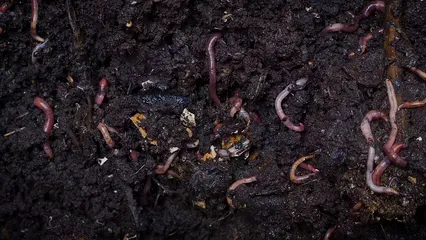
5. Worm Castings
Worm castings are nature’s little gold nuggets for your vegetable garden. These nutrient-rich pellets provide a slow-release source of essential nutrients, including nitrogen, phosphorus, and potassium. Not only do they improve soil fertility, but they also enhance soil structure and increase moisture retention. If you’re looking to add some to your garden, you can find Worm Castings Organic Fertilizer online!
To apply worm castings, simply spread them on the soil surface around your plants or mix them into your potting mix. A good rule of thumb is to use about 1 cup of castings per square foot of garden bed. You can also brew worm tea by steeping castings in water for a nutrient-rich liquid. This tea can be used as a fantastic foliar feed, providing a quick nutrient boost.
The benefits don’t stop there! Worm tea improves beneficial microbial life in the soil, further enhancing plant health. So, whether you’re using castings directly or making tea, your veggies will thank you for the extra love!
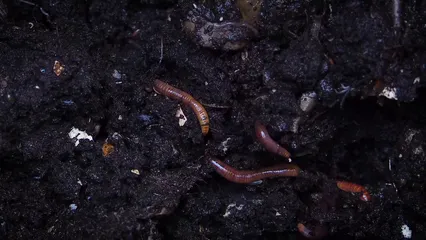
6. Manure
Manure is a classic organic fertilizer that can do wonders for your vegetable garden. Different types of manure, like cow, chicken, and horse, each offer unique nutrient profiles. Cow manure is well-rounded and great for general use, while chicken manure is nitrogen-rich, perfect for leafy greens. Horse manure provides potassium and nitrogen, making it an excellent choice for root crops. You might want to grab some Composted Manure for your garden!
When applying manure, composting is crucial. Fresh manure can be too strong and may burn your plants. Aim to use well-composted manure, which is safer and more effective. Spread a 2-3 inch layer of composted manure over your garden beds in the spring or fall. This not only boosts nutrients but also improves soil structure and moisture retention.
Timing is everything! Apply manure at least a month before planting to allow it to break down and release nutrients. With its rich organic matter, composted manure improves soil health, setting your garden up for a productive growing season. Just be mindful of the types and quantities you use, as too much can lead to nutrient runoff and other issues.

7. Homemade Fertilizers
Homemade fertilizers are a delightful way to nourish your garden while being kind to the planet. Using kitchen scraps not only reduces waste but also enriches your soil. Here are two easy recipes that will make your plants sing!
Banana Peel Tea: Banana peels are rich in potassium, which is vital for flowering and fruiting plants. Simply chop a few banana peels and soak them in water for 48 hours. After that, strain the liquid and use it to water your plants. Your tomatoes and peppers will love you for it! If you want to take it a step further, consider using Organic Banana Peel Fertilizer for a consistent nutrient boost!
Coffee Grounds: Used coffee grounds are a gardener’s secret weapon. They add nitrogen and improve soil structure. Just sprinkle the grounds around your plants or mix them into your compost. If you’re feeling adventurous, make a coffee ground tea by soaking them in water for a few days. Strain and use it as a nutrient boost for your leafy greens.
Utilizing kitchen scraps not only benefits your garden but also promotes sustainability. By turning waste into valuable nutrients, you’re contributing to a healthier planet. So next time you’re brewing coffee or peeling bananas, think twice before tossing those scraps in the trash. Your plants will thank you!
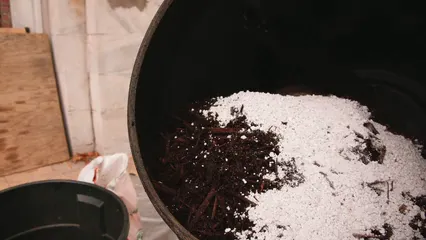
Application Tips for Small Space Gardens
1. Frequency and Timing
Timing is everything when it comes to fertilizing your garden. Different plants have various nutrient needs at different growth stages. Generally, most vegetables benefit from fertilization every 4-6 weeks during the growing season. For fast growers like lettuce and radishes, a little extra love every 2-3 weeks can work wonders.
However, in small spaces, moderation is key. Over-fertilizing can lead to nutrient imbalances, especially when plants are confined to limited soil. A simple rule of thumb is to watch your plants. If they appear lush and healthy, you’re likely doing great! If they start growing too tall with weak stems, it might be time to ease off on the fertilizer.

2. Application Methods
Applying fertilizers can be done in several ways, and each method has its advantages. Top dressing involves spreading a layer of fertilizer on the soil surface around your plants. This method works well for granular fertilizers, allowing nutrients to seep into the soil when it rains.
Liquid applications are another popular method. Diluting liquid fertilizers in water and applying them directly to the soil or as a foliar spray can yield quick results. This is especially useful for plants in containers.
Integrating fertilizers with your watering schedule is a smart move. Watering just after applying fertilizer helps disperse the nutrients evenly. Keep an eye on the weather too! If rain is on the horizon, hold off on fertilizing until after the downpour. This prevents nutrients from washing away and ensures your plants get the most benefit.
By following these tips, you’ll be well on your way to a thriving small-space vegetable garden!
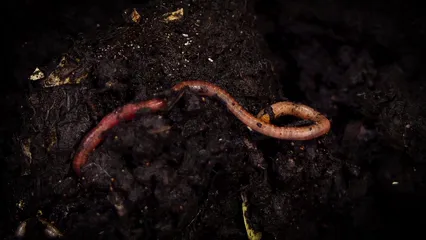
3. Crop Rotation and Companion Planting
Crop rotation is like giving your soil a refreshing makeover. By changing the types of vegetables grown in a specific area year after year, you help maintain a balanced nutrient level. Different plants have varied nutrient needs. For instance, heavy feeders like tomatoes drain the soil of certain elements. When you rotate them with legumes, which can replenish nitrogen, you’re enhancing nutrient availability and promoting soil health.
This practice also helps fend off pests and diseases. Many pests are crop-specific. By rotating your plants, you confuse those pesky critters. It’s a simple yet effective way to reduce infestations without any harsh chemicals. Healthier soil leads to happier plants, which means a more bountiful harvest.
Now, let’s talk about companion planting. This technique is like hosting a dinner party where everyone gets along splendidly. Certain plants, when grown together, can enhance each other’s growth, deter pests, and maximize the use of space. For example, planting basil alongside tomatoes not only boosts tomato flavor but also keeps pests away.
Companion planting is an excellent strategy for small spaces. By selecting compatible plants that thrive together, you can make the most of your limited garden area. Think of it as a garden buddy system that keeps your plants happy and healthy. Embrace these practices, and your vegetable garden will flourish, proving that good friends (and plants) make all the difference!

Conclusion
In summary, the best organic fertilizers for small vegetable gardens include compost, fish emulsion, seaweed, bone meal, worm castings, and manure. Each provides unique nutrients essential for plant growth. Compost enriches soil structure, while fish emulsion and seaweed offer a fast nutrient boost. Bone meal supports flowering and fruiting, and worm castings are a treasure trove of nutrients. Meanwhile, well-composted manure feeds your plants slowly over time.
Experimenting with these organic options can lead to fantastic results. Keep an eye on how your plants respond. Every garden is unique, and finding the right mix for yours may take a little trial and error. Don’t shy away from adjusting your methods to see what works best.
Remember, maintaining soil health is crucial for sustainable gardening. Healthy soil supports robust plants and leads to plentiful harvests. With patience and care, your small vegetable garden can thrive, providing delicious produce for you and your family. So, roll up your sleeves, try different fertilizers, and enjoy the fruits of your labor! And don’t forget to invest in some quality Organic Plant Food to keep your plants thriving!
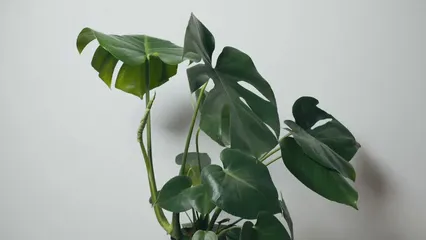
FAQs
Can I use organic fertilizers on all types of vegetables?
Absolutely! Organic fertilizers are suitable for most vegetables. However, some plants may have specific nutrient needs. For example, root vegetables may prefer different ratios than leafy greens. Always check the specific requirements for the types of vegetables you are growing.
How often should I fertilize my vegetable garden?
Generally, fertilizing every 4-6 weeks during the growing season works well. Fast-growing crops might benefit from more frequent applications, around every 2-3 weeks. Adjust based on plant health; if they look lush and leafy, you’re likely on the right track.
Are organic fertilizers safe for pets and children?
Yes, organic fertilizers are generally safer than synthetic options. They contain natural ingredients that pose less risk if ingested. However, it’s always wise to keep pets and kids supervised in the garden, just in case they decide to munch on something they shouldn’t.
Can I make my own organic fertilizers at home?
Definitely! You can easily create homemade fertilizers. For instance, banana peel tea is rich in potassium. Simply soak banana peels in water for a few days, strain, and use the liquid to water your plants. Coffee grounds and eggshells are also great additions to your garden.
What are the signs of nutrient deficiency in plants?
Look out for yellowing leaves, stunted growth, or poor fruit development. For instance, yellowing leaves might indicate nitrogen deficiency, while purple leaves can signal phosphorus issues. Regularly monitor your plants and adjust fertilization accordingly to keep them healthy and thriving.
Please let us know what you think about our content by leaving a comment down below!
Thank you for reading till here 🙂
If you’re looking for the best organic fertilizers for your vegetable gardens in small spaces, check out this informative article on best organic fertilizers for vegetable gardens in small spaces.
All images from Pexels
